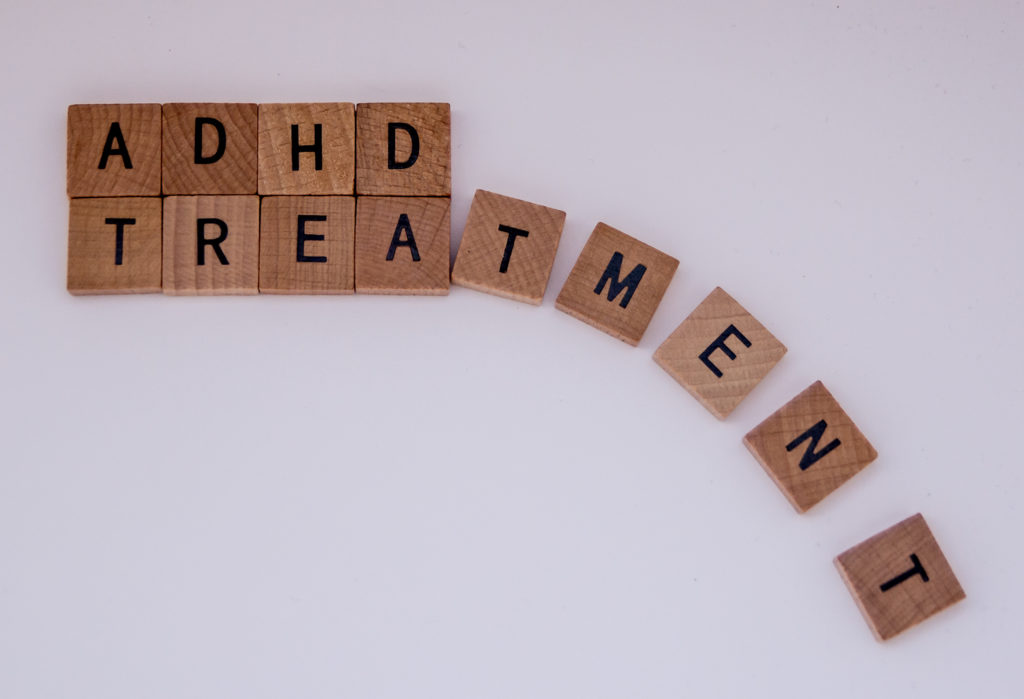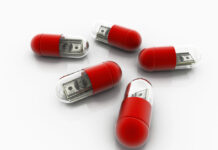In December, MIA reported on a systematic Cochrane review on the research for the safety and effectiveness of Ritalin (methylphenidate) that found substantial bias in previous studies and a lack of quality evidence. Major medical associations, however, recommend this drug as a treatment for children and teens diagnosed with ‘ADHD.’ In a major step, the Journal of the American Medical Association (JAMA) has issued a “Clinical Evidence Synopsis” that reiterates the Cochrane findings and calls for guidelines to be reevaluated.

Ritalin is the drug that is commonly prescribed as a treatment for a child or adolescent who is diagnosed with Attention Deficit Disorder or ADHD. In the US, we have seen a 43% increase in school-aged children diagnosed with ADHD since 2003, with a 5.8 million youths receiving such a diagnosis.
Both the American Academy of Pediatrics and the National Institute for Health Care and Excellence currently issue guidelines that recommend this drug for children presenting with these symptoms, but researchers are now raising questions about whether these recommendations are based on good evidence.
The Cochrane analysis rated existing studies on their risk for bias and found that the body of research on which these recommendations are based was of such low quality and at such a high risk for bias that it was impossible to make any conclusions about the drug’s effectiveness.
The researchers also evaluated the study data for the risk of potential adverse effects. They found that the risk for several non-severe side effects, including loss of appetite, sleep problems, and growth suppression, was 29% higher in those treated with the drug.
While the new review was unable to investigate the risk for serious adverse side-effects, due to the limited and biased nature of the existing research, other studies have linked stimulant medications to the emergence of hallucinations and symptoms associated with psychosis. In January, a study in the journal Pediatrics found that a shocking 62.5% of youth on stimulants had psychotic symptoms compared to only 27.4% of those who had never taken stimulants.
It remains to be seen whether this review of the evidence will alter the clinical practice guidelines issued by medical organizations or spur new, and potentially less biased, attempts at research on this topic. Unfortunately, recent studies have revealed that the organizations that issues these guidelines may also be at a risk of bias due to undisclosed financial conflicts of interest.
****
Storebø, O.J., Krogh, H., Ramstad, E., Moreira-Maia, C.R., Holmskov, M., Skoog, M., Nilausen, T.D., Magnusson, F.L., Zwi, M., Gillies, D. and Rosendal, S., 2015. Methylphenidate for attention-deficit/hyperactivity disorder in children and adolescents. BMJ (online). (Abstract)















I just think doctors should spend a week taking these pills and parents should try them out before deciding to give them to kids.
ADHD drugs are better than cocaine for getting high and focusing, with cocaine you have to keep doing it every 15 minutes but both methylphenidate and the amphetamine based ADHD drugs produce a nice focused high for several hours and that’s at the prescribed dose. The high is the focus. You can’t have one without the other.
I feel like a rat for not going along with the standard lie of “if you ‘have’ ADHD the medication doesn’t get you high,” I used to say that all the time too.
Taking 3 or 4 times the recommended dose really doesn’t get you higher, there is like a cieling that if you go past it is unpleasant wish you hadn’t.
Methylphenidate (ritalin) feels more like cocaine cause it is a ‘stupider’ high where the amphetamine based ADHD drugs create this illusion that you are smarter but your really kind of more in the box but can’t tell.
But anyway the reason parents or the medical community gives this stuff to kids is because they never tried it themselves. You will see parents making sure a cup of soup is not to hot by trying it themselves before putting it in front of the kid but for some reason almost none of them do the same with psychiatric drugs.
So I suggest parents try an adult size dose and feel the ‘focus’ and then the can’t eat anxiety ridden depressing crash that comes later , do it every day for a week, then decide if you want your kids taking this stuff.
Its that crash that sucks, that’s why I quit . I have an official ADHD diagnosis from a testing center my “speed license” I can take to almost any doctor and start that nonsense all over again.
I think the war on drugs is bullcrap, sell ADHD pills over the counter like liqueur for adults who want it, who cares, but giving that high powered stuff to children are you kidding ??
I don’t care how many studies people read, the only way to know what this stuff really does is to takes some yourself.
Report comment
Well you can get a fast dissolving, candy flavoured Adderall pill now, so will Ritalin follow suit? THAT should encourage the little ones to take one, or two, or three, four, five, and die.
Report comment
One of the last times I took Ritalin was when I saw that movie “Limitless” in the theater. 20mg 45 minutes before I went in and 10 more soon after it started, I was like ya I get this, kind of laughing the all the other people in the theatre were just watching but I am feeling it too but the crash started to come towards the end of the movie and I had to pee real bad and was all paranoid about asking like 10 people to let me past.
Limitless Movie Trailer Official https://www.youtube.com/watch?v=jOLqNOfzus4
I finished that Rx in a few weeks and never went back, I got stuff done being all focused but that crash is so horrible I was just like the heck with this no more. I took Adderal for years too before that, then other stuff for the crash Clonopin and Remeron to sleep then the AD20s to wake up and do it again day in and out never again. “Limitless” is fun but that’s only for a day or 2 then its a crappy routine all over again no thanks.
It will be different this time.., no it wont.
Report comment
This is no big surprise. Conflict of interests and lousy studies that are biased. Why would anyone want to give their child meth in the first place? We put people in jail for selling and using meth on street corners of our cities but we poke the damned stuff down the throats of our children at the drop of a hat. What is wrong with this picture???????? And this is called “good, evidence -based treatment”???????
Report comment
I agree. But what gives?
We know this. Some of the psychiatrists and other prescribers know it. The drugmakers know it. Some parents know it. A lot of children know it. FDA knows it.
The doctors, the manufacturers, and the FDA could jointly or individually put an end to it. Two of those groups do very well by keeping the status quo. And I guess those two groups provide the information the third one, the FDA, relies on to make decisions.
Report comment
I guess, the supply of Ritalin, Adderall etc to the more entrepreneurial kids will work. They won’t take it but they’ll be concentrating in class okay as they develop their business plan to market it. Another success is among the kids whose parents take and sell the meds. The kids get happy parents off their backs and/or buckle down and work because Mum and Dad will beat the living crap out of them if they tell.
Report comment
I personally did become psychotic on the time release Methylphenidate transdermal product known as Daytrana. Fortunately I stayed home mostly, but I managed to lose all my clients for my creative services, and my boyfriend and my best friend.
I haven’t wanted to go back to any of them and say “Hey, that’s wasn’t really me, making no sense and ranting and all that. I was on a drug–I mean a prescription medication–I’m not really crazy.”
The pain of not being believed and reinstated would be too great. People who can only imagine the effect of alcohol on behavior can’t fathom the transformative power of psych drugs, unless they charitably choose to take one’s word for it.
It’s not a drug to be used by people who live alone, that’s for sure. Noven can warn you in 2″ letters that you might become psychotic, but what good does that do once you’re out of your skull?
Report comment
Through the No Child Left Behind Act, each student has a universal PIN. We have the statistical power now to have each prescription registered to that PIN, and we can followup the students. We need to know how these students performed longitudinally. Did they graduate? Did they have problems with drugs as adolescents?
It is not right to use children as test subjects based on adult projections. Children in general fight all the time at home and act in ways that adults deem inappropriate. Having said that, children don’t use drugs or alcohol under 12, so they don’t wind up in the emergency department because they spiraled out of control in their petty domestic violence fits. Basically, they hit each other, and they stop.
As such, we have to ask ourselves, what is our goal. If the goal is well adjusted adults that learn to cope with their emotional frustrations, then drugs are not the solution in the vast majority of cases for children. Yes, a valid case of true attention deficit may benefit selectively. But physicians are now questioning the use of these drugs because of obvious abuse and increased visits to the emergency departments throughout the nation.
Report comment
“ADHD drugs are better than cocaine for getting high and focusing, with cocaine you have to keep doing it every 15 minutes but both methylphenidate and the amphetamine based ADHD drugs produce a nice focused high for several hours and that’s at the prescribed dose. The high is the focus. You can’t have one without the other.”
I had an unsatisfactory trial of MPH for ADHD in adulthood, and they improved my focus but I didn’t at any time feel “high”. I guess there is a lot of individual variability and it needs to be explored, and potential patients need explicit information to guide their choices.
I discontinued the use of MPH because of the appetite suppressant effect, and the “crashes” between doses. I don’t have any experience of using other stimulant drugs, aside from caffeine, so I don’t honestly know what a crash from a “high” would be. I didn’t actually “feel” any different, either emotionally or physically, while the ritalin was at its peak in my system. The only retrospective evidence that it was working came when I looked back at the end of the day and saw how much more engaged I had been with my daily activities. For me, the “crash” problem involved feeling intensely irritable and tired as the drug wore off, and so ridiculously hungry that it was nigh on impossible to make healthy food choices. I know a number of adults who take ritalin and report no ill effects but, over time, it became intolerable for me, so I quit.
I really worry about the lack of attention given to understanding children’s own experiences of taking ritalin, and well, any drugs really. As an adult I have choice and educational privilege, and it was still impossible to make myself heard with the first doctor I saw. How do children stand a chance?
And this:
“They found that the risk for several non-severe side effects, including loss of appetite, sleep problems, and growth suppression, was 29% higher in those treated with the drug.”
Non-severe? In whose opinion? I want to round these people up, restrict them to a diet of “nutritious paediatric milk shakes”, and sit by their bedsides and poke them with a pointy stick, every time they drop off to sleep at night, for a good six months or so. Then they might want to have another think about the use of “non-severe” in this context!
Report comment